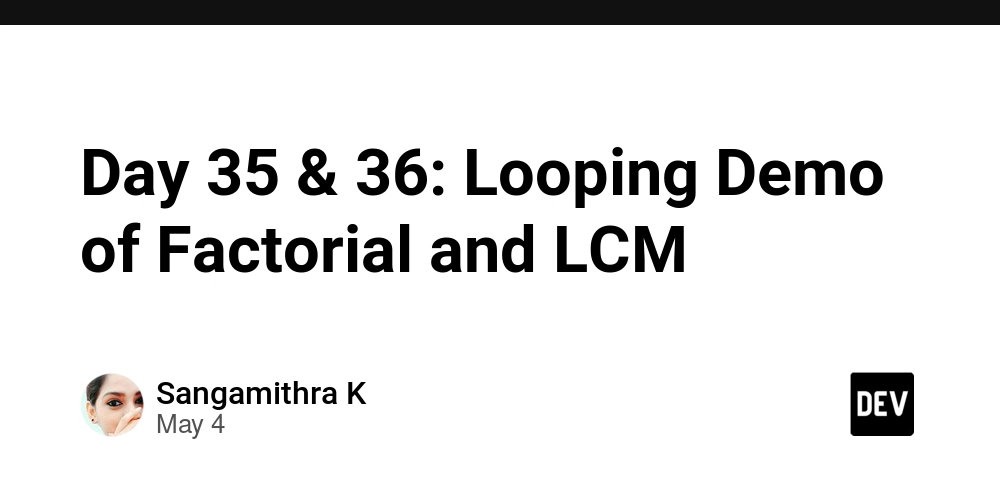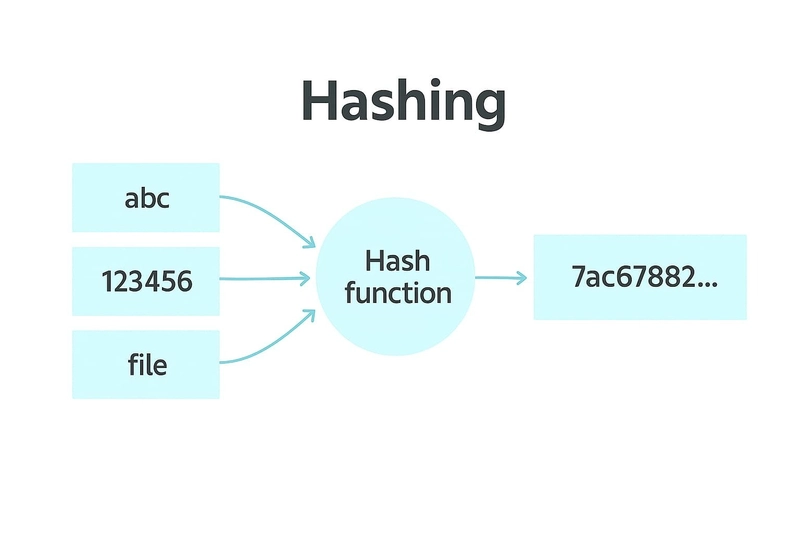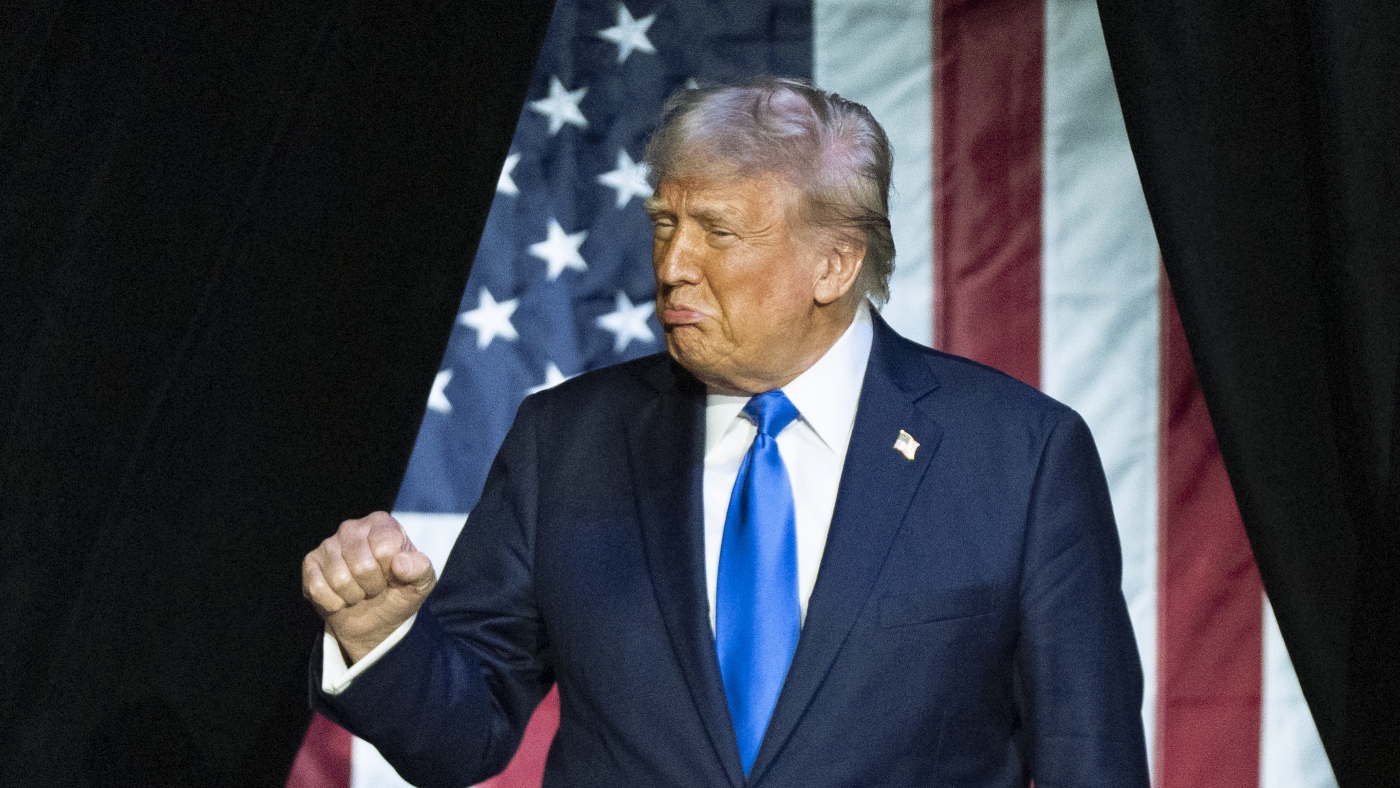The Destruction of the Department of Justice
When people at the department embrace Trump’s scorn for the law, the law, as a practical limitation on government action, ceases to exist.

When Thomas Paine asked what made America different from England, he had a ready answer: “In America, the law is king.” America has not always upheld that ideal, but, taking the long view, it has made great progress toward that principle. In recent decades, the Department of Justice has become an institutional embodiment of these aspirations—the locus in the federal government for professional, apolitical enforcement of the law, which is in itself a rejection of the kingly prerogative. That is why Donald Trump’s debasement of the DOJ is far more than the mere degradation of a governmental agency; it is an assault on the rule of law.
His attack on the institution is threefold: He is using the mechanisms of justice to go after political opponents; he is using those same mechanisms to reward allies; and he is eliminating internal opposition within the department. Each incident making up this pattern is appalling; together, they amount to the decimation of a crucial institution.
Investigations should be based on facts and the law, not politics. Yet Trump has made punishing political opposition the hallmark of his investigative efforts. The DOJ’s independence from political influence, long a symbol of its probity (remember how scandalous it was that Bill Clinton had a brief meeting with Attorney General Loretta Lynch?), is now nonexistent.
This development should frighten all citizens, no matter what their political persuasion. As Attorney General Robert Jackson warned in 1940, the ability of a prosecutor to pick “some person whom he dislikes and desires to embarrass, or selects some group of unpopular persons and then looks for an offense, [is where] the greatest danger of abuse of prosecuting power lies.” Choosing targets in this way flies in the face of the DOJ’s rules and traditions—to say nothing of the actual, grave harm it can inflict on people.
[Read: The Supreme Court has no army]
Far from eschewing the possibility of abuse, Trump and his allies at the Department of Justice positively revel in it. The most egregious example was Trump’s recent issuance of an executive order directing the government to investigate the activities of two of his own employees in the first administration, Chris Krebs and Miles Taylor, who later came to be political opponents of his. (Both men are friends and colleagues of mine.)
Their offense of perceived disloyalty is perhaps the gravest sin in Trump world, and as a result, they will now be individually targeted for investigation. The personal impact on each of them is no doubt immediate and severe. Krebs, who is a well-respected cybersecurity leader, has quit his job at SentinelOne and plans to focus on his defense. If Trump’s DOJ pursues this investigation to the limit, the two men could face imprisonment.
The cases of Krebs and Taylor do not stand in isolation. Recently, the U.S. attorney in New Jersey (Trump’s former personal attorney Alina Habba) launched an investigation into the state of New Jersey for its alleged “obstruction” of Trump’s deportation agenda. In other words, because New Jersey won’t let its own employees be drafted as servants of Trump’s policy, the state becomes a pariah in Trump’s mind, one that must be coerced into obedience.
Meanwhile, Attorney General Pam Bondi has announced that the U.S. government is suing Maine because of the state’s refusal to ban transgender athletes from playing on girls’ high-school sports teams. Not content with threatening Maine, Bondi has also announced an investigation of the Los Angeles Sheriff’s Office because of its alleged opposition to the Second Amendment and its “lengthy” process for approval of gun permits. And she recently announced that she would target leakers of classified information by going after journalists, rescinding a policy that protected journalists from being subpoenaed to assist government-leak investigations.
But the most aggressive abuser of the criminal-justice system has to be the interim U.S. attorney for the District of Columbia, Ed Martin. Martin has asked the FBI to investigate several of President Joe Biden’s EPA grantees for alleged fraud—a claim so weak that one of Martin’s senior subordinates resigned rather than have to advance it in court. He has also begun to investigate, or threatened investigations of, Georgetown University, Senator Charles Schumer, and Representatives Eugene Vindman and Robert Garcia, among others. More recently, in mid-April, Martin sent a series of inquiry letters to at least three medical and scientific journals, asking them how they ensured “competing viewpoints,” with the evident intention of suggesting that the failure to include certain minority opinions was, in some way, content discrimination.
[Read: Ed Martin has completely disqualified himself]
A less-well-known example of Martin’s excess is his use of threats of criminal prosecution to empower DOGE. When DOGE was first denied entry into the U.S. Institute of Peace, one of the lawyers for USIP got a call from the head of the U.S. attorney’s criminal division, threatening criminal investigation if they didn’t allow DOGE into the building. Magnifying that power of criminal law, Martin sent D.C. police officers to the agency, telling the police that there was “an ongoing incident at the United States Institute of Peace” and that there was “at least one person who was refusing to leave the property at the direction of the acting USIP president, who was lawfully in charge of the facility,” according to the journalist Steve Chapman.
A final example of DOJ overreach is, perhaps, the most chilling of all. In a recently issued presidential memorandum, Trump directed the attorney general to “investigate and take appropriate action concerning allegations regarding the use of online fundraising platforms to make ‘straw’ or ‘dummy’ contributions and to make foreign contributions to U.S. political candidates and committees, all of which break the law.” Were the investigation neutral in nature, this might be understandable. But it isn’t.
In fact, there are two major fundraising platforms in use—WinRed (the Republican platform) and ActBlue (the Democratic one). Even though WinRed has been the subject of seven times as many FTC complaints as ActBlue, the Trump memorandum involves only the latter. By targeting his opponents’ fundraising, Trump is overtly marshaling the powers of federal law enforcement in his effort to shut down political opposition.
In essence, Trump is using the department to try to ensure future Republican electoral victories. One can hardly imagine a more horrifying variation on Lavrentiy Beria’s infamous boast: “Show me the man and I’ll show you the crime.”
Just as the Justice Department is being used to punish Trump’s enemies, it is likewise being used to reward Trump’s friends.
The first and most notorious of these rewards requires little introduction. On his very first day in office, Trump pardoned nearly all of the January 6 rioters or commuted their sentences, including those, such as Stewart Rhodes and Enrique Tarrio, who had been convicted of orchestrating the violence. When convicted insurrectionists—people who have been subject to a fair trial and been found guilty by a jury of their peers—are rewarded with pardons and commutations, the bedrock of legal accountability is fractured beyond recognition.
Other examples of favors for friends abound: In one prominent case, Trump moved to dismiss the federal corruption charges against New York Mayor Eric Adams on the transparently pretextual grounds that the case had been a political assault by the Biden DOJ. The order caused a mass resignation among prosecutors who worked on the case. As the federal judge reviewing the dismissal concluded, it amounted to an illegitimate political quid pro quo intended to reward Adams for his political support and induce him to lend further assistance to Trump’s anti-immigrant agenda. Not content with being slapped down by the judge, Deputy Attorney General Todd Blanche demanded that three of Adams’s prosecutors “admit” that the office had been wrong in prosecuting the case. They refused and resigned instead.
[Read: A blatant violation of legal ethics]
If these were the only two instances of using the legal system to repay friends, they would still, in any other era and with any other president, be a scandal of immense consequence. Under Trump, they are only the appetizer to an entire meal of political rewards to his supporters—the crypto industry, police unions, oligarchs, and others.
For example, to benefit his crypto allies, Trump has closed the cryptocurrency-fraud investigation unit at the DOJ. The decision to no longer investigate crypto mixers will give far greater leeway to their activities. To a similar effect, Trump’s decision to pardon Ross Ulbricht can only be seen as fan service for the crypto bros. Ulbricht was convicted of crimes related to the creation of Silk Road, an online crypto marketplace for illegal drugs and other illicit goods, but he is a cult hero to the crypto industry.
Support from police unions was a key component of Trump’s electoral victory. As their reward, Trump has ordered the DOJ to delete its database of police misconduct, making it harder to track the activities of bad cops. He has also frozen the DOJ’s review of police departments engaged in systemic unlawful behavior, reducing the possibility of reform and entrenching existing union power.
Trump’s Justice Department has also significantly cut the staff at the FBI office charged with investigating domestic terrorism, including actions by right-wing militias. At the same time, he has rewarded Elon Musk by launching a task force to investigate anti-Tesla attacks. As a further sop to his cultural supporters, the president has destroyed the DOJ’s civil-rights division. His assistant attorney general of that division, Harmeet Dhillon, has boasted that more than 100 attorneys under her have left because Trump has reoriented their work away from cases involving police reform and abortion access to keeping transgender athletes out of women’s sports and ending alleged liberal “indoctrination” in K–12 education.
The depth of the corruption of the DOJ’s independence extends even to more trivial acts, such as restoring the actor and MAGA hero Mel Gibson’s right to carry a gun despite his domestic-violence conviction. Meanwhile, the rich personal and corporate supporters get richer. Some, like Paul Walczak, the son of a Trump-campaign supporter, benefit directly through yet more pardons.
Others benefit through transparent changes in DOJ policy that have the effect of benefiting their bottom line. For example, after proposing the virtual closure of the DOJ’s tax division and distributing its resources across the nation—a move that would eliminate a source of legal expertise directed at finding well-heeled tax cheats—the department pivoted to an only slightly less-bad idea: splitting the division into two pieces (civil and criminal) and redistributing them to the civil and criminal divisions, respectively. Meanwhile, large corporations also benefit from Trump’s executive order “pausing” prosecutions under the Foreign Corrupt Practices Act, on the grounds that prohibiting bribery of foreign officials limits American competitiveness, as if bribery should be a part of how American corporations compete in the world. This “pause” has resulted in the delay or dismissal of at least five cases.
In short, it pays to have friends in high places—especially when they give you the special justice rate.
None of these abuses of power could have happened if the career staff at the DOJ had refused to comply. That’s what occurred, more or less, in Trump’s first administration. Recognizing the lawlessness of his conduct, the career staff resisted, both overtly and covertly.
Trump learned his lesson from that failure. The final part of his campaign to destroy the department is sidelining any attorney who opposes Trump’s will.
To cite one prosaic example, the Department of Justice’s Office of the Pardon Attorney is responsible for assessing and making recommendations on when and to whom the president should issue pardons. In Mel Gibson’s case, the pardon attorney, Elizabeth G. Oyer, declined to recommend the restoration of his firearm rights because, under traditional standards, he did not qualify. Oyer was fired.
Around the same time, Trump’s team took steps to limit scrutiny of their actions more generally. To that end, they fired the head of the Office of Information Policy (which handles Freedom of Information requests) and placed the head of the Office of Professional Responsibility (whose job it is to make sure that DOJ employees act ethically) on administrative leave, thereby removing those responsible for external and internal oversight.
These reassignments were just the start. More than a dozen career lawyers who worked, as assigned, on the criminal investigations of Trump during the Biden administration were let go. And the immigration attorney who forthrightly told a court that Kilmar Abrego Garcia was mistakenly deported to El Salvador due to an administrative error was relieved of his position.
Other dismissals were intended to marginalize or dismiss career leadership who might balk at Trump’s misuse of power: At least six senior members of the FBI leadership, whose only apparent error was leading the FBI while Biden was president, were given a choice of resigning, retiring, or being fired. Career lawyers at the DOJ’s national-security and criminal divisions who have historical expertise and knowledge, including Bradley Weinsheimer, the department’s top ethics official, were reassigned or forced to retire; four career lawyers in the environment division who led enforcement efforts were reassigned to immigration work. Meanwhile, Trump significantly reduced the staffing at the Public Integrity Section—the part of the Justice Department that is responsible for investigating corrupt acts by elected officials and that, in an ideal world, would be responsible for holding Trump in check.
And those who have not been fired or reassigned have been effectively incapacitated. Employees in the Office of Legal Counsel are considered the government’s in-house lawyers; among other duties, they typically review all White House executive orders to make sure they are legal under constitutional and statutory authority. But that office has been without a leader since Trump’s inauguration and reportedly has barely been consulted about Trump’s controversial executive orders—no doubt one reason that so many of them have failed in the courts.
Likewise, the Office of the Solicitor General is responsible for all of the government’s litigation before the Supreme Court. Rather than advance Trump’s overly aggressive arguments, at least half of the legal staff, some of the very best lawyers in government, are on their way out the door.
The inevitable result of this bloodletting? Many of those who remain behind are cowed into further submission. One anonymous DOJ lawyer described their experience at work in recent weeks to The Economist: “As time went on, a chill descended on the department. The hallways used to be a hubbub of chatter about cases, family life, weekend plans, but then they grew quiet. Conversations moved behind closed doors, and we became furtive and reticent. People cried in meetings. I often wondered why I still had a job.”
The phrase rule of law can easily become a shibboleth, signifying little. But the rule of law is the basis of any decent society. On one side of the coin, acceptance of the rule of law by those who govern is at the core of individual liberty. By abiding by the rules, government restrains its own abusive tendencies. And on the other side of the coin, trust in that restraint enables individual freedom, giving citizens the confidence to act as they wish, free from fear of retribution. If the government moves to punish those who speak out in opposition, merely the thought of that possibility can cause self-editing.
Without confidence in the rule of law, citizens live in fear of arbitrary and capricious exercises of power. That fear is enough to make anti-Trump political figures, such as Mona Charen, look over their shoulders. It is enough, even, to make senators (including Republican ones) concerned. “We are all afraid,” Senator Lisa Murkowski of Alaska recently told the Anchorage Daily News. “It’s quite a statement. But we are in a time and a place where I certainly have not been here before. I’ll tell you, I’m oftentimes very anxious myself about using my voice, because retaliation is real. And that’s not right.”
That threat of retaliation is rampant; it underlies Trump’s assault on the independence of universities and large law firms. And it is enabled only by his diminution of the Department of Justice.
[Read: The pathetic, cowardly collapse of Big Law]
The DOJ’s disregard for the rule of law is not confined to the DOJ; it leads to disregard for the rule of law by other agencies of government as well. The DOJ typically provides legal advice that instructs agencies to do as the courts require. Now, however, the department is systematically assisting other agencies (most notably the Department of Homeland Security) in evading their obligations to the court system and judges. As a result, the DOJ’s lawlessness spreads. One federal judge has already found probable cause to believe that the Trump administration is in criminal contempt of an order relating to its illegal flights of immigrants to El Salvador. The administration is also risking being held in contempt of another court’s efforts to manage the facilitation of the return of Kilmar Abrego Garcia to the United States. None of this would be possible without the DOJ’s destruction, and none of it would be permissible in any other administration.
These are hardly the only instances of contempt for the justice system. Trump has also effectively written out of existence the anti-TikTok law passed by Congress. And he has ignored the order of one of his own district-court appointees to let the Associated Press back into the Oval Office. When those at the Justice Department who enforce the law embrace Trump’s scorn and no longer care about its content or consider it binding, the law, as a practical limitation on government action, ceases to exist.
But worst of all, when we lose the rule of law, we lose the system that undergirds our democracy. Law is not self-enforcing. It exists and animates our society because we believe it does. When that belief crumbles under Trump’s assault, we all suffer.
The Ronald Reagan–appointed conservative jurist J. Harvie Wilkinson issued an opinion the other day denying an attempt by the administration to delay its efforts to bring Abrego Garcia back to the U.S., saying that Trump is creating “a conflict that promises to diminish both” branches of government. “The Judiciary will lose much from the constant intimations of its illegitimacy, to which by dent of custom and detachment we can only sparingly reply. The Executive will lose much from a public perception of its lawlessness and all of its attendant contagions. The Executive may succeed for a time in weakening the courts, but over time history will script the tragic gap between what was and all that might have been, and law in time will sign its epitaph.”
At the end of April, Trump’s DOJ charged Hannah Dugan, a Wisconsin judge, with obstructing justice for the alleged crime of preventing ICE from arresting an illegal alien in her courtroom. The specter of using force to intimidate judges is a direct effort to undermine judicial independence and cow into submission the last branch of government that stands in the president’s way. Attorney General Pam Bondi used the incident to go on cable TV to say that the administration was “sending a very strong message” and that “we will come after you and we will prosecute you.”
The United States once revered the rule of law. Americans believed that those who rule the country should be governed by it, and that it should be applied equally to each of us. Being subject to law means that government action is, as a general matter, less arbitrary, more predictable, less commanding, less subject to personal whims, and, in the end, less coercive. The rule of law is what makes citizens freer to say and do what they please.
Maintaining the rule of law is premised on the neutrality of DOJ employees. They must be committed to treating similar cases and defendants alike. They must apply the law without regard to political and social factors. And they must act without creating a fear of retribution or an expectation of receiving favors in return.
That is what Americans should be crying out for today. I fear it might already be too late to restore the faith in law we once had. The courts cannot save themselves, and Congress is supine. Significant damage to institutions has already been done.
Americans must reject the nightmare that lies ahead. They must work to restore a society of laws, and they can do so at the ballot box. But first, they must recognize the disease; only then can they demand a cure.









































































